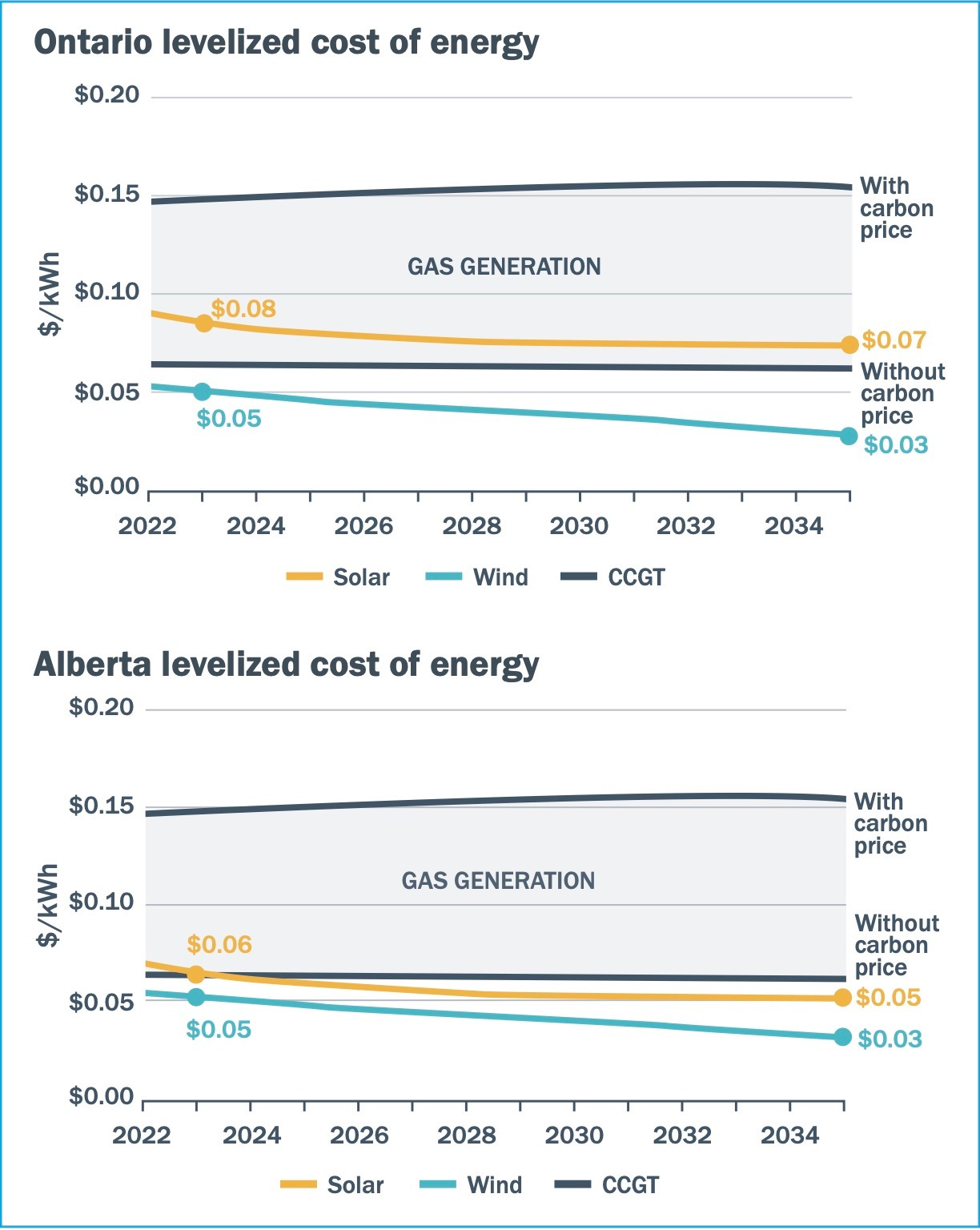With Profits So Obscene, How Can This Be Oil’s Last Gasp?
Fossil profits set new records. The energy transition speeds up. So two of the world’s biggest oil companies tap the brakes.
With energy transition investment hitting an all-time high and countries trying to outdo each other on cleantech development, you might have hoped the world’s biggest fossil companies would seize the moment, join the parade, and put some substance behind their net-zero PR.
If that’s what you’ve been thinking, think again.
The news last week moved so fast that we could barely keep up long enough to write it. We were two-thirds of the way through a lead story on the record US$1.1 trillion countries had invested in mostly clean energy transition projects last year, equalling global fossil fuel spending for the first time. We had Europe and Canada scrambling to keep up with an avalanche of activity in the United States, and everyone racing to keep up with renewables development in China.
Then one of the world’s biggest fossil companies, BP, released analysis showing oil and gas production falling sooner than it previously predicted, renewables rising in tandem, and carbon emissions dropping faster as a result. If we were a print publication, it would have been one of those hallowed moments when we actually got to shout, “Stop the presses!”
It’s too bad BP didn’t read its own modelling before tallying up its windfall profits for 2022, then deciding to “dial back” its investments in wind and solar. And BP wasn’t alone.
For anyone who still imagines that better shareholder engagement is the way to get fossil companies to decarbonize—Royal Bank, Canada Pension Plan Investments, we’re looking at you—maybe it’s time to judge the companies by their actions, not their media releases and PR spin.
Record Profits? Time to Cut Renewables Spending
Fossils’ public pronouncements over the last little while paint a picture of an industry choosing to take the money and run, rather than putting it into the clean, green future they say they want to be a part of.
BP decided to cut back on its highly-touted green shift, with CEO Bernard Looney “said to be concerned about the returns from its investments in renewables such as wind and solar,” according to The Telegraph.
Shell is holding its renewables investments steady in 2023, rather than increasing them, Bloomberg Green reports, despite taking in $39.9 billion in profit last year. And the company’s definition of “renewables” had UK-based Global Witness filing a greenwashing complaint with the U.S. Securities and Exchange Commission last week, claiming that Shell had misled investors by devoting almost all of its renewables funding to climate-busting natural gas projects.
The record $3.5 billion the company earmarked for its renewables and energy solutions division last year was meant to cover everything from wind and solar to carbon capture and carbon offsets and amounted to only 14% of its capital spending, “still less than half what the company spends on oil and gas exploration and extraction,” Bloomberg writes.
In Canada, oil sands companies have been teasing a C$24.1-billion investment in emissions reduction projects. But only if taxpayers pick up much of the tab.
BP and Shell are putting a lid on their energy transition spending even as their industry posts record profits. ExxonMobil led the pack at $56 billion—nearly $6.4 million per hour, as Reuters points out—then gloated that it had picked the right path by sticking with oil and gas rather than pivoting to renewables. Chevron doubled its profits to $36.5 billion and used the windfall to increase shareholder dividends and buy back $75 billion worth of stock.
Environmental Defence Canada is keeping a running tab of fossils’ 2022 results, with emphasis on Canadian companies.
Riding High, But a Decline is Nigh
But even with the industry racking up obscene profits today, their own behaviour and future projections show that a decline may be right around the corner—and they know it. The New York Times says the “bonanza” brought on largely by Russia’s war in Ukraine is already beginning to fade. And the billions pouring out to shareholders are the revenues the companies would have invested in new oil and gas fields in past years.
Those decisions, in turn, will help keep oil supplies tighter and prices higher, making energy efficiency, renewable energy, and energy storage an even better deal than they already are.
Meanwhile, the signs of a faster transition are coming into view.
Citing BP’s projections, Bloomberg columnist Nathaniel Bullard says global oil demand has already peaked. And an analysis for the Rocky Mountain Institute by UK energy analyst Kingsmill Bond “makes a case that wind and solar power are going through growth that looks almost exactly like the trend lines for the early stages of transformative products and industries, across technologies and eras, like automobiles and smart phones,” Inside Climate News writes. “The growth begins slowly, with high costs, and shifts into high gear as costs shrink and efficiency rises.”
That growth trajectory for smaller, more versatile clean energy technologies has been taking shape for years. Now, Bond says it’s upon us.
Nowhere is the shift out of fossil fuels more obvious than Europe, where the “political response to Russia’s invasion of Ukraine in 2022 was to accelerate its electricity transition,” the Ember think tank writes. The supply crunch that triggered last year’s profit numbers drove a short-term dash for gas, and even coal. But “it could have been much worse: wind, solar, and a fall in electricity demand prevented a much larger return to coal,” Ember says. And “2023 will be quite the opposite,” with renewables deployment increasing and electricity demand continuing to shrink.
It’s still not all the progress we need. And yet, the momentum we’re seeing so far this year is an essential step along the way. No one really knows the origin of the proverb that “the best time to plant a tree was 20 years ago; the second-best time is now”. But with some lucky breaks, a lot of hard work, and an acceleration in the trends that we’re seeing today, the fossil decline could still happen in time to hold off the worst effects of climate change.
Mitchell Beer traces his background in renewable energy and energy efficiency back to 1977, in climate change to 1997. Now he scans 1,200 news headlines a week to pull together The Energy Mix and The Energy Mix Weekender.
You can also bookmark our website for the latest news throughout the week.
Chart of the Week








